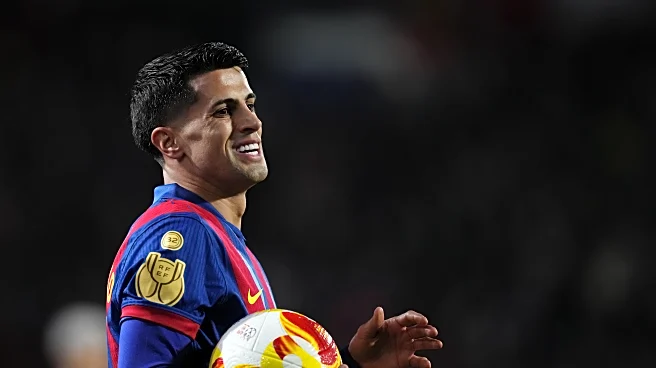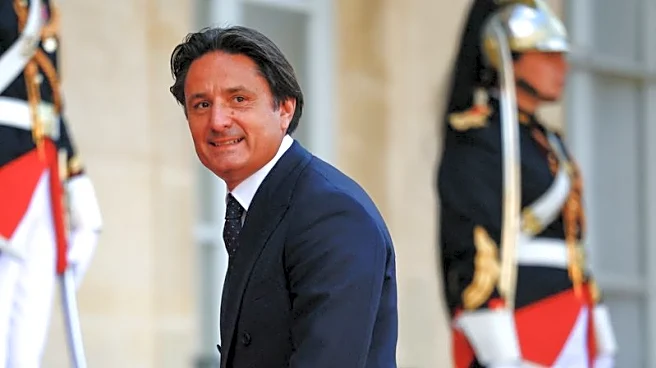What's Happening?
Manchester City has demonstrated a strong offensive performance in the current season, largely due to Erling Haaland's exceptional goal-scoring abilities. Haaland has scored 11 goals in eight matches across the Premier League and Champions League, making him a central figure in the team's attack. This reliance on Haaland has led to Manchester City being described as a 'one-man team,' a significant shift from the style of play associated with manager Pep Guardiola's previous teams, such as Barcelona in the early 2010s. Guardiola's teams were known for their collective play, where every player contributed to both offense and defense. However, at Manchester City, Haaland's role has become more specialized, focusing primarily on scoring goals.
Why It's Important?
The heavy reliance on Haaland's goal-scoring raises questions about Manchester City's overall strategy and potential vulnerabilities. While Haaland's performance has been outstanding, the team's dependence on a single player could pose risks if he becomes unavailable due to injury or other factors. This situation contrasts with Guardiola's previous teams, which were known for their versatility and collective strength. The shift in strategy could impact Manchester City's performance in the long term, especially in high-stakes matches where opponents might focus on neutralizing Haaland. Additionally, this reliance could influence the team's dynamics and the roles of other players, potentially affecting their morale and performance.
What's Next?
As the season progresses, Manchester City may need to adapt their strategy to ensure they are not overly dependent on Haaland. This could involve diversifying their attacking options and encouraging other players to take on more significant roles in goal-scoring. Guardiola might also consider tactical adjustments to balance the team's offensive and defensive responsibilities. The team's performance in upcoming matches will be closely watched to see if they can maintain their momentum and address any potential weaknesses. Stakeholders, including fans and analysts, will be interested in how Guardiola manages this situation and whether Manchester City can achieve success with their current approach.
Beyond the Headlines
The current situation at Manchester City highlights broader themes in sports management, such as the balance between individual brilliance and team cohesion. It raises questions about the sustainability of relying on a single player and the potential impact on team dynamics. This scenario also reflects the evolving nature of soccer tactics, where managers must continuously adapt to changing circumstances and player capabilities. The outcome of Manchester City's season could influence how other teams approach their strategies, particularly in managing star players and fostering a balanced team environment.











